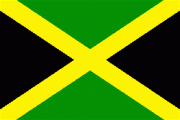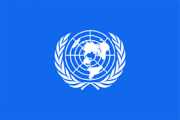Mr. President, I have the honour to speak on Agenda item 75 (a) on behalf of the Caribbean Community (CARICOM), namely: Antigua and Barbuda, the Bahamas, Barbados, Belize, Dominica, Grenada, Guyana, Haiti, St. Kitts and Nevis, St. Lucia, St. Vincent and the Grenadines, Suriname, Trinidad and Tobago and my own country Jamaica.
CARICOM welcomes the very comprehensive and informative report of the Secretary - General, contained in document A/67/79/add.1 and other related documents concerning developments and issues relating to ocean affairs and the law of the sea.
Mr. President, CARICOM is naturally very delighted, that our annual General Assembly Debate coincides with the special plenary session simultaneously being held in commemoration of the 30th Anniversary of the United Nations Convention on the Law of the Sea, which was opened for signature in Montego Bay, Jamaica on 10th December 1982.
It is therefore important and worthwhile for us to recall that the Convention, whose provisions defines the rights and responsibilities of nations in their use of the World’s Oceans, and which establishes guidelines for businesses, the environment and the management of the marine nature resources, makes this landmark international instrument as relevant today as it was 30 years ago when the Convention was adopted.
Mr. President, CARICOM notes that the Convention continues to be accepted by an increasing number of states as the Constitution of our Oceans and Seas. We are particularly pleased that since the publication of the Annual Report of the Secretary General, two Member States, Swaziland and Ecuador became parties to the Convention in September this year, thereby bringing the total number of States Parties to 164.
Mr. President, CARICOM Member States continue to rely significantly on the use of the Caribbean Sea for the conduct of our regional and international maritime trade and commerce as well as for the development of our Tourism and Fisheries Industries.
Accordingly, the protection of the Caribbean Sea and the sustainable management of its resources, including the preservation of the marine environment, remain a high priority for CARICOM Member States. We welcome the acknowledgement of the inextricable linkages between the protection and sustainable management of the marine environment for sustainable development in all its dimensions, in “The Future We Want”, the outcome document of the United Nations Conference on Sustainable Development which took place in Rio de Janeiro from 20th to 22nd June of this year.
We wish to commend the work and activities of the Caribbean Sea Commission which, since its establishment in 2006, has been spearheading the initiative to designate the Caribbean Sea as a special area in the context of sustainable development. We also welcome the continued interest of the international community in this endeavour, as evident in their continued engagement in the negotiations on the biennial resolution entitled “Towards the sustainable development of the Caribbean Sea for present and future generations”.
Despite the progress made through the efforts of the Caribbean Sea Commission, CARICOM Member States remain concerned about the threats to the preservation and protection of the region’s marine environment and fragile ecosystems as a result of land based run offs oil spills, as wells as ballast water exchange.
We welcome the timely activities being undertaken by the United Nations Environment programme (UNEP) in conjunction with the Caribbean Environment programme in developing partnerships, integrated approaches in such areas as waste water management and sanitation, sustainable agricultural practices, integrated coastal management, sustainable tourism, and environmentally sound maritime transport in the wider Caribbean region.
We also seek urgent international cooperation in order to address other pressing challenges such as the significant vulnerability of corals and coral reefs to climate change, ocean acidification, overfishing, destructive fishing practices and pollution.
CARICOM Member States highly value the programmes being made available to Member States under the auspices of the Division for Ocean Affairs and the Law of the Sea, for capacity building particularly in the area of marine scientific research. We are especially pleased to see the growing number of countries which have benefited from the Hamilton Shirley Amerasinghe Memorial Fellowship on the Law of the Sea and the United Nations-Nippon Foundation of Japan Fellowship Programme. These are of crucial importance given the global significance of oceans to the sustainable development of our economies.
Mr. President, while CARICOM acknowledges the right of Member States to use Nuclear Energy for peaceful purposes, we remain deeply concerned about the continued transportation of hazardous nuclear waste and other hazardous material through the Caribbean Sea. Such activities pose potential threats to lives and health of our citizens, the environment and our economies.
Like the rest of the international community, CARICOM remains deeply alarmed at the continued acts and attempted acts of piracy and armed robbery at sea, in the Horn of Africa off the coast of Somalia, the Gulf of Guinea and the Indian Ocean.
Nevertheless, we are heartened to note that since 2011, there has been a reduction in the overall attacks owing to the application of best practices by the shipping industry, the continuing naval presence and the deployment of military protection detachments among other factors.
Mr. President, in addition to existing threats posed by the trafficking of drugs, small arms and light weapons, CARICOM is also seriously concerned at the repeated incidents of human trafficking and migrant smuggling by sea. We are however encouraged by the efforts which have been undertaken by the UN Office on Drugs and Crime (UNDOC) to address these threats, including the publication of the Framework for Action to Implement the Smuggling of Migrant Protocol.
CARICOM commends the important work being undertaken by the three constitutive organs established by the United Nations Convention on the Law of the Sea, the Commission on the Limits of the Continental Shelf, the International Seabed Authority and the International Tribunal for the Law of the Sea.
With regard to the International Seabed Authority (ISA), CARICOM welcomes the successful outcome of the 18th Session of the Authority, which culminated with the adoption of the draft regulations on prospecting and exploration for cobalt rich ferromanganese crusts in the Area. We are satisfied that these regulations have been crafted in full accordance with the provisions of the Convention relating to the protection and preservation of the marine environment.
Mr. President, CARICOM looks forward to the 19th Session of the Authority to be held in 2013, at which it is expected that work on the draft regulations for the exploitation of deep seabed resources will finally commence.
With regard to the work load of the Commission on the Limits of the Continental Shelf, CARICOM notes from the Secretary General’s report that the economic promises offered by the exploitation of seabed resources have also led to a steep increase in the number of submissions to the Commission. This increase has coincided with the 13th May 2009 end, of the 10 year period for making submissions to the Commission for many state parties to the Convention. We also note with interest, the heightened political attention being paid, at the highest level to supporting the process to establish the outer limits of the continental shelf.
CARICOM is therefore assured by the very positive and important work being undertaken by the constitutive organs, which amply demonstrates the continued relevance of the Convention to the International Community.
Finally, Mr. President, CARICOM closely shares and indeed endorses the observations outlined in the conclusion of the Secretary General’s report that, “Oceans play a key role in our lives, whether or not we live in coastal areas. They are integral to sustainable development, offering many development opportunities such as achieving food security, facilitating trade, creating employment and generating tourism”.
For CARICOM Member States, these observations resonate strongly with our Governments, as they serve to underline the vital importance of the Oceans and the utmost necessity to protect and preserve the marine environment, so as to better safeguard the economic livelihoods of our countries and our very survival as viable nation states.
We therefore urge the international community to respond urgently to the Secretary General’s appeal for Member States to facilitate greater adherence to, and implementation and enforcement of, the United Nations Convention on the Law of the Sea, and its implementing Agreements, as well as other relevant instruments.


